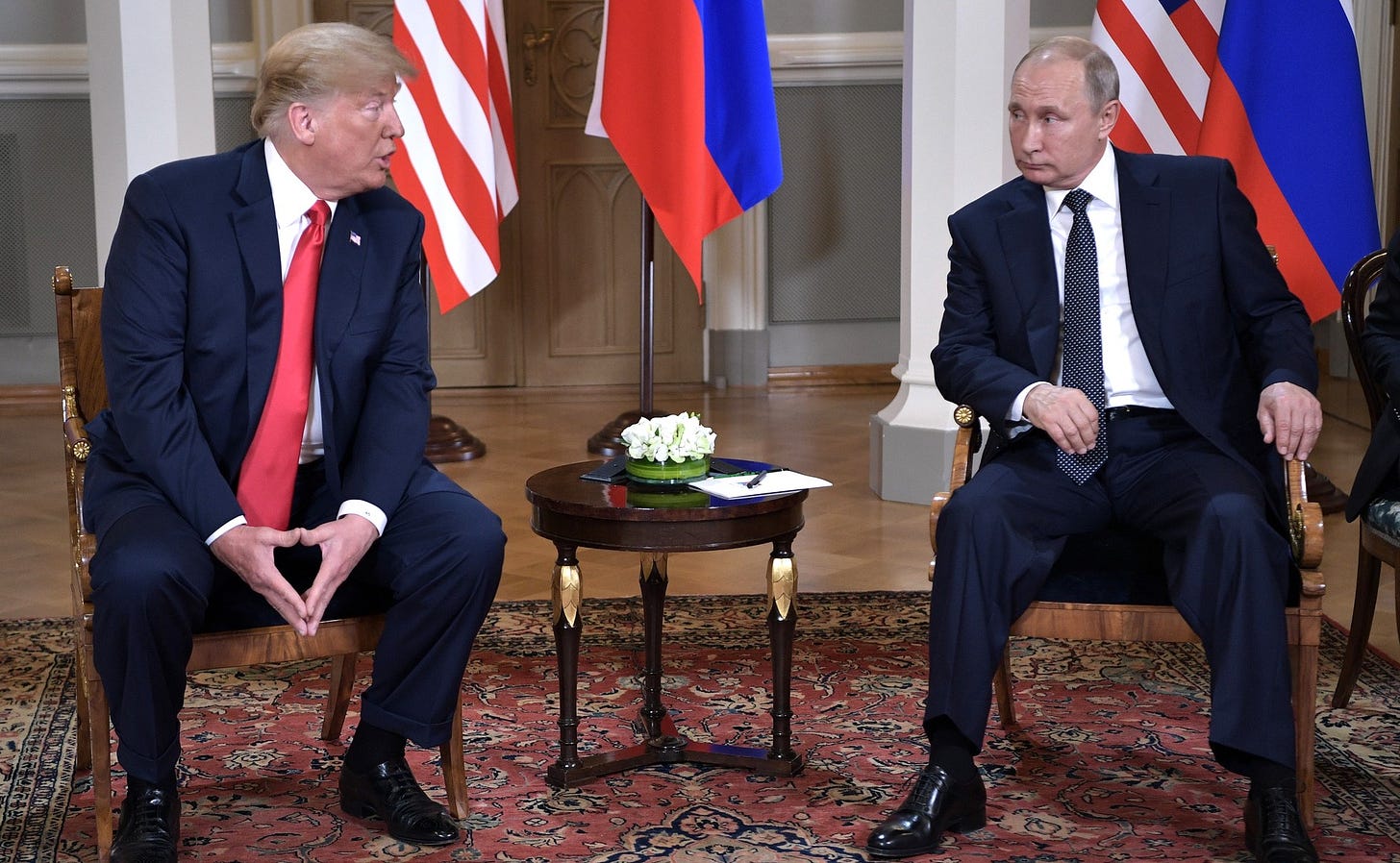While the U.S. Walks Away From the World, the World Walks Away From the U.S.
Deciphering Trump’s International Relations Logic
Vladimir Putin and Donald Trump in Helsinki, July 17, 2018. Source: www.kremlin.ru
At the end of a striking portrait of Cardinal de Retz, La Rochefoucauld concluded: “He distances himself from the world, which distances itself from him” (1662). The election of Donald Trump to a new term in the White House raises a question of an almost similar order: wil…


